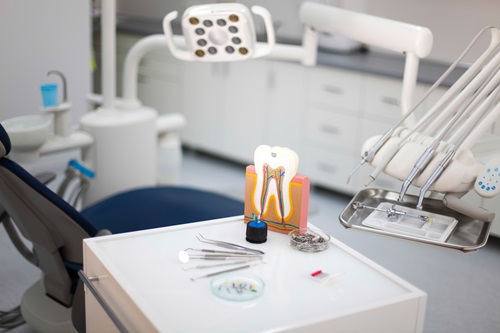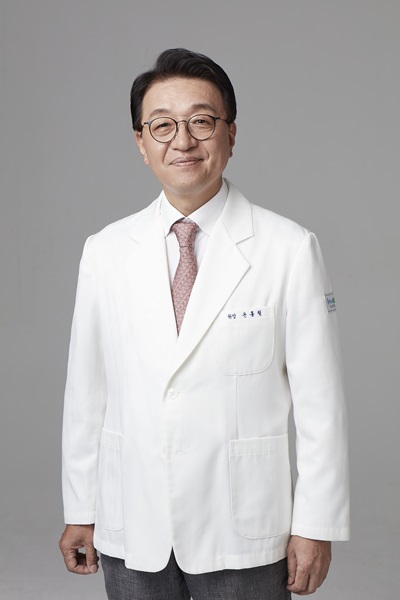Importance of Dental Care Across All Ages
From Primary Teeth Care to Advanced Gum Disease Management
- tooth decay
- gum disease
- dental health
- primary teeth
- Qray

Healthy teeth were considered one of the 'Four Treasures of the Body' by our ancestors. Teeth not only serve a simple chewing function but also maintain the balance of the autonomic nervous system. Therefore, when problems arise with teeth, daily life becomes significantly uncomfortable, and the quality of life deteriorates.
Moreover, unlike other tissues in the body, teeth are difficult to recover once damaged naturally. Additionally, inflammatory substances from dental decay and periodontal diseases affect the entire body through the bloodstream, increasing the risk of various conditions such as diabetes, pneumonia, dementia, and cardiovascular diseases.
The number of dental patients in Korea has been steadily increasing. According to recent data from the Health Insurance Review and Assessment Service (HIRA), the number of dental patients in 2022 reached 24.24 million. This figure accounts for 47.1% of the South Korean population and increased by 5.9% compared to 2018.
By age group, the increase was highest among those aged 80 and above at 45.3% (annual average 9.8%), followed by the 60-69 age group at 30.4% (annual average 6.9%), and the 70-79 age group at 18.3% (annual average 4.3%). Looking at the patient status compared to the population by age group in 2022, it appeared in the following order: 0-9 years old with 2,233,975 patients (63.2%), 60-69 years old with 4,011,802 patients (54.2%), and 70-79 years old with 2,045,660 patients (53.5%).
Among individuals aged 19 and under, dental caries (27.2%) was the most common disease, followed by dental developmental and eruption disorders (21.5%). For individuals aged 20 to 59, periodontal disease and gingival conditions (38.4%) were the most prevalent, followed by dental caries (9.1%). Those aged 60 and above experienced periodontal disease and gingival conditions (41.0%) as the most common, followed by diseases of the pulp and periapical tissues (9.5%).
■ Prejudices about baby teeth as 'eventually falling out teeth' should be discarded.
Teeth are classified into primary and permanent teeth. Many people consider primary teeth 'teeth that will fall out anyway' and often neglect their care. However, neglecting primary teeth can lead to uneven growth of permanent teeth and misaligning the bite.
One thing to be careful about is tooth decay, also known as dental caries. Dental caries patients under nine account for over 20% of all patients. Primary teeth are vulnerable to dental caries because they are small and have weak enamel, and the progression of decay is rapid.
Primary teeth should be managed as soon as they begin to erupt. Fortunately, in Korea, we offer free oral health check-ups for toddlers. You should attend these check-ups four times: first at 18-29 months, second at 30-41 months, third at 42-53 months, and fourth at 54-65 months.
Lifestyle management is also essential. First, make sure your child doesn't fall asleep while sucking on a bottle. Falling asleep with a bottle can lead to baby bottle tooth decay. This condition mainly affects the front teeth and occurs when sugars from breast milk, formula, milk, fruit juice, or other sweetened drinks cling to the teeth for long periods.
Using fluoride toothpaste can also be very helpful. For infants and toddlers aged 6 months to 3 years, using about a smear or rice-sized amount of fluoride toothpaste is recommended twice a day. However, be cautious when adjusting the amount if your child is at risk of swallowing the toothpaste.
Dr. Yoon Hong-chul, the chief dentist at Best Dentistry, explains, 'Failure to properly manage primary teeth can prevent permanent teeth from developing properly or lead to misalignment.' He adds, 'Severe tooth decay can result in premature tooth loss, leading to chewing habits on one side only and worsening facial asymmetry.'
■ Elderly Individuals Need to Pay Special Attention to Gum Disease Management.
Oral health is the cornerstone of overall health. Recently, research findings have indicated a link between the oral health of the elderly and dementia.
In particular, the elderly are vulnerable to gum disease (periodontal disease). Periodontal disease is one of the chronic degenerative diseases in the 10s caused primarily by aging. Bacteria proliferate around the teeth due to leftover food and tartar, causing inflammation in the gums and bone surrounding the teeth. Ultimately, the bone tissue surrounding the teeth is destroyed by gum disease. Once the gum bone is destroyed by gum disease, recovery is complex, often requiring the establishment of dental implants.
Especially in South Korea, the dental health status of the elderly is notably poor. According to reports, the average number of remaining teeth for elderly individuals aged 65 to 74 is 18.0, lower than the European average of 20.9. Furthermore, 45.4% of elderly aged 65 and older complain of discomfort due to dental or gum problems.
The problem lies in the lack of economic activity, which makes dental treatment burdensome. Although the government has expanded insurance coverage for implants for those 65 and older, many elderly individuals still postpone treatment.
However, dental health in old age is closely related to nutrition intake, and reduced chewing stimulation can impair cognitive function. Visiting the dentist regularly for check-ups and receiving necessary treatments such as implants is essential.
Director Yoon Hong-chul emphasized, "Tooth loss in old age significantly reduces quality of life and can be the starting point for systemic diseases, so it is essential to visit the dentist regularly.
[Mini Interview] Yoon Hong-chul, CEO of iBio
CEO Yoon Hong-chul stated, 'The quantitative fluorescence diagnostic test system developed by iBio helps

in early detection of oral diseases' and explained that 'it was recognized as a new medical technology by the Ministry of Health and Welfare in 2018.
Yoon Hong-chul currently serves as the CEO of iBio (AIBIO). iBio has developed a quantitative fluorescence diagnostic test system that provides convenient testing with safe light, shows transparent colors, and evaluates specific numerical values. This system is supplied to dental clinics and oral care companies domestically and internationally.
Do tooth fractures cause cavities?
You should suspect tooth fractures if your tooth feels sensitive when chewing food or drinking cold beverages. Initially, these fractures are very fine and challenging to see with the naked eye, but if you miss the timing for treatment, you may need root canal treatment or extraction.
You developed Qray to detect tooth fractures easily.
Qray is a biofilm fluorescence testing system that detects dental biofilm using blue visible light (405nm) and special filters. The Qray diagnostic device was developed based on the validated 'quantitative fluorescence technique.' Its most significant advantage is its excellent visual effect, making identifying the risk of oral diseases easier. When the blue visible light is projected onto the teeth, areas with abnormalities appear red fluorescent. The quantitative fluorescence test was recognized as a new medical technology by the Ministry of Health and Welfare in 2018. It was included as a dental caries examination item in the dental health insurance coverage in 2021.
I am curious about Qray Camp and the equipment used in dental hospitals.
Qray Camp is a product that has received a medical device Class 2 certification. It can screen for cracked teeth and dental caries that are difficult to observe with the naked eye or X-rays. Additionally, it is equipped with a healthcare platform called LinkDens, which can manage patients' oral health by integrating with Qray.
Please share your thoughts on the importance of dental health.
Even the most minor tooth fractures do not naturally heal. If left untreated, the fractures only widen and deepen. The key to dental treatment is to preserve natural teeth as much as possible. Regular oral examinations and scaling are crucial for maintaining my teeth.
